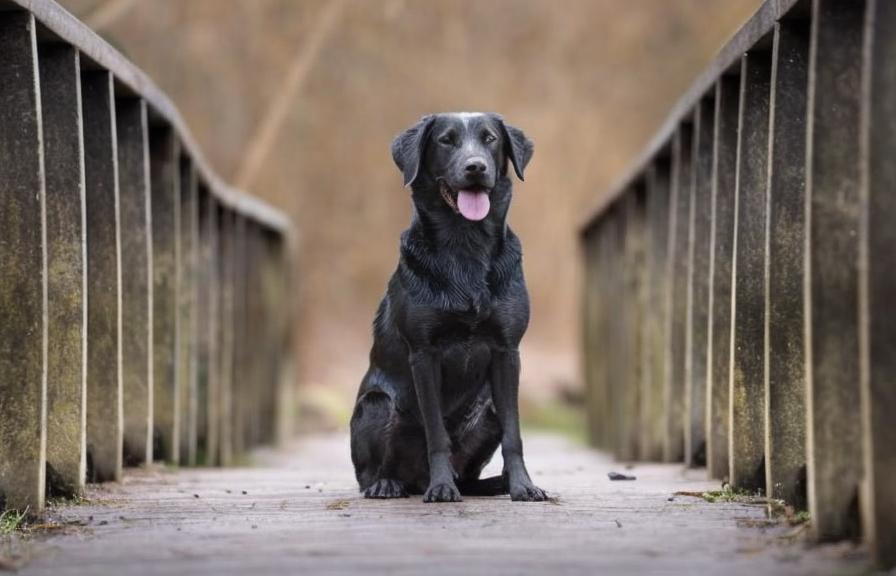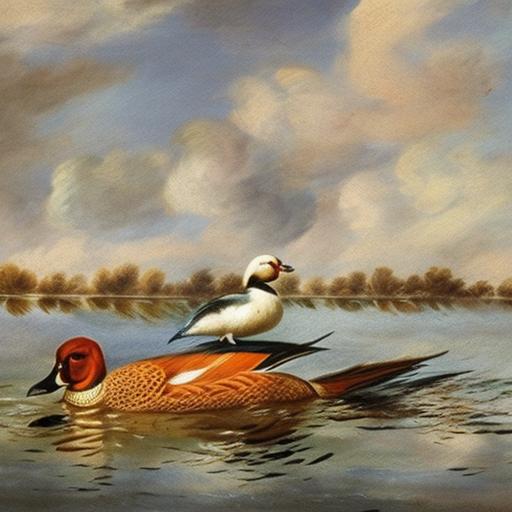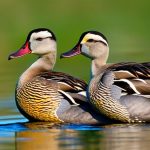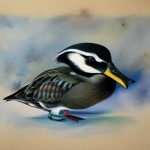When it comes to duck hunting, having the right dog by your side can make all the difference. There are several breeds that are particularly well-suited for this type of hunting, each with their own unique set of skills and characteristics. One of the most popular duck hunting dog breeds is the Labrador Retriever. Known for their intelligence, loyalty, and strong retrieving instincts, Labs are excellent swimmers and have the endurance to keep up with the demands of a long day of hunting. Another popular choice for duck hunting is the Chesapeake Bay Retriever. This breed is known for its strength, courage, and ability to withstand cold water, making them well-suited for retrieving ducks in harsh conditions. The Golden Retriever is also a top choice for duck hunting, thanks to their friendly disposition, intelligence, and natural retrieving abilities. Their gentle nature and eagerness to please make them a great companion in the field.
In addition to these breeds, the Boykin Spaniel is another excellent choice for duck hunting. This compact and versatile breed is known for its agility, endurance, and strong swimming abilities, making them well-suited for retrieving ducks in a variety of environments. The American Water Spaniel is also a popular choice for duck hunting, thanks to their strong retrieving instincts, intelligence, and adaptability to different hunting terrains. Lastly, the German Shorthaired Pointer is a versatile and energetic breed that excels in both upland and waterfowl hunting. Their natural hunting instincts, athleticism, and trainability make them a top choice for duck hunters looking for a versatile hunting companion.
Key Takeaways
- Labrador Retriever, Chesapeake Bay Retriever, and Golden Retriever are some of the best duck hunting dog breeds
- Look for characteristics such as strong swimming ability, high energy, and a water-repellent coat in a duck hunting dog
- Training tips for duck hunting dogs include socialization, obedience training, and exposure to water and retrieving exercises
- Retrieving skills are crucial for duck hunting dogs as they need to retrieve ducks from water and dense vegetation
- Health considerations for duck hunting dog breeds include joint health, ear infections, and exposure to cold water and weather
- Choose the right duck hunting dog based on your hunting environment, hunting style, and the dog’s temperament and abilities
- Famous duck hunting dog breeds in history include the Labrador Retriever, the Nova Scotia Duck Tolling Retriever, and the American Water Spaniel
Characteristics to Look for in a Duck Hunting Dog
When choosing a duck hunting dog, there are several key characteristics to look for to ensure that they will be well-suited for the demands of the hunt. First and foremost, a strong retrieving instinct is essential in a duck hunting dog. This means that the dog should have a natural drive to retrieve and bring back downed ducks without hesitation. Additionally, a good duck hunting dog should be an excellent swimmer, as much of the hunting will take place in or around water. Dogs with webbed feet and a water-resistant coat are particularly well-suited for this type of hunting.
Another important characteristic to look for in a duck hunting dog is intelligence and trainability. A dog that is quick to learn and eager to please will be easier to train for the specific tasks required during duck hunting, such as staying still in a blind, following hand signals, and retrieving on command. Endurance is also a key characteristic to consider, as duck hunting often involves long days in the field or marshes, and a dog that can keep up with the physical demands of the hunt will be invaluable. Lastly, a good temperament is essential in a duck hunting dog. They should be calm, focused, and able to work well with other dogs and hunters in the field.
Training Tips for Duck Hunting Dogs
Training a duck hunting dog requires time, patience, and consistency. One of the most important aspects of training is obedience. A well-trained dog will be able to follow commands both on land and in water, making them more effective in the field. Basic obedience commands such as sit, stay, come, and heel are essential for any duck hunting dog. It’s also important to expose the dog to different hunting environments and scenarios early on in their training so that they can become familiar with the sights, sounds, and smells of the hunt.
Retrieving training is another crucial aspect of training a duck hunting dog. This involves teaching the dog to retrieve ducks on command, as well as to deliver them to hand without damaging the bird. Using dummy ducks or bumpers during training can help the dog develop their retrieving skills before introducing them to live birds. It’s important to start this training at a young age and gradually increase the difficulty as the dog becomes more proficient. Additionally, introducing the dog to gunfire in a controlled and positive manner is essential for their success in the field.
Consistent practice and reinforcement of training are key to developing a well-trained duck hunting dog. Regular training sessions, both in the field and at home, will help solidify the dog’s skills and ensure that they are prepared for the demands of duck hunting season.
The Importance of Retrieving Skills in Duck Hunting Dogs
Retrieving skills are crucial for duck hunting dogs, as their primary role in the hunt is to retrieve downed ducks from water or marshy terrain. A well-trained retriever will be able to mark the location of downed birds, navigate through water or dense cover to retrieve them, and deliver them to hand without damaging the bird. This requires a combination of natural instincts, training, and experience.
A strong retrieving instinct is essential in a duck hunting dog, as it provides the drive and motivation to retrieve downed birds even in challenging conditions. Dogs with a natural inclination to retrieve will be more enthusiastic and persistent in their efforts, making them more effective in the field. Additionally, retrieving skills can be honed through consistent training and practice. By introducing dogs to retrieving tasks at a young age and gradually increasing the difficulty as they progress, they can develop into skilled retrievers capable of handling the demands of duck hunting.
In addition to their role in retrieving downed birds, strong retrieving skills also contribute to the overall success and efficiency of the hunt. A well-trained retriever can help locate and flush out ducks, making it easier for hunters to take their shots. They can also assist in tracking wounded birds and retrieving birds that may have fallen out of sight. Ultimately, a duck hunting dog with strong retrieving skills is an invaluable asset in the field, contributing to a successful and enjoyable hunting experience.
Health Considerations for Duck Hunting Dog Breeds
When it comes to duck hunting dogs, maintaining their health and well-being is essential for their performance in the field. One important consideration is ensuring that they are up-to-date on vaccinations and preventative care to protect them from common diseases and parasites that they may encounter while hunting in different environments. Regular veterinary check-ups can help identify any health issues early on and ensure that the dog is fit for the physical demands of hunting.
Another important aspect of maintaining the health of duck hunting dogs is proper nutrition and hydration. Dogs that are active in the field require a balanced diet that provides them with the energy and nutrients they need to perform at their best. Additionally, ensuring that they have access to clean water at all times is crucial for preventing dehydration and maintaining their overall health.
Regular exercise is also important for maintaining the health and fitness of duck hunting dogs. Keeping them physically fit through activities such as swimming, running, and retrieving exercises can help prevent obesity and keep their muscles strong and agile for the demands of hunting. Lastly, proper grooming and hygiene practices are essential for preventing skin infections, ear infections, and other common issues that can arise from exposure to water and dense cover while hunting.
Choosing the Right Duck Hunting Dog for Your Needs

When choosing a duck hunting dog, it’s important to consider your specific needs and preferences as a hunter. Different breeds have unique characteristics and abilities that may make them better suited for certain types of hunting or environments. For example, if you primarily hunt in cold water or harsh conditions, a breed like the Chesapeake Bay Retriever may be an ideal choice due to their strength, endurance, and cold-resistant coat. On the other hand, if you hunt in a variety of terrains and environments, a versatile breed like the German Shorthaired Pointer may be a better fit due to their athleticism, adaptability, and strong hunting instincts.
It’s also important to consider your level of experience as a hunter and trainer when choosing a duck hunting dog. Some breeds may be better suited for experienced hunters who are looking for a more independent and versatile hunting companion, while others may be better suited for novice hunters who are looking for a more trainable and obedient partner in the field.
Additionally, considering factors such as size, temperament, grooming requirements, and compatibility with other pets or family members can help ensure that you choose a duck hunting dog that fits seamlessly into your lifestyle and meets your specific needs as a hunter.
Famous Duck Hunting Dog Breeds in History
Throughout history, several breeds have gained fame for their exceptional abilities as duck hunting dogs. One such breed is the Labrador Retriever, which has long been recognized as one of the most popular and versatile hunting companions. Known for their intelligence, loyalty, and strong retrieving instincts, Labs have been favored by hunters for their ability to excel in both upland game bird hunting and waterfowl hunting.
Another famous duck hunting breed is the Chesapeake Bay Retriever, which has earned a reputation for its strength, courage, and cold-resistant coat that makes them well-suited for retrieving ducks in harsh conditions. Their history as a dedicated waterfowl retriever has solidified their place as one of the most famous duck hunting breeds in history.
The Golden Retriever is also renowned for its abilities as a duck hunting dog, thanks to their friendly disposition, intelligence, and natural retrieving abilities. Their versatility as both a family pet and a skilled hunter has made them a popular choice among hunters.
In addition to these breeds, the Boykin Spaniel has gained recognition as a top choice for duck hunting due to its compact size, agility, endurance, and strong swimming abilities. Their versatility as both an upland game bird hunter and waterfowl retriever has made them a favorite among hunters looking for a versatile hunting companion.
Overall, these famous duck hunting breeds have left an indelible mark on the history of hunting with their exceptional skills, loyalty, and dedication to their role as valuable partners in the field.
If you’re considering duck hunting dog breeds, you might also be interested in learning about the importance of a well-designed chicken coop for raising poultry. A well-maintained coop not only provides a safe and comfortable environment for chickens but also contributes to their overall health and productivity. Check out this informative article on 10 Essential Features of a Chicken Coop to ensure that your feathered friends have the best living conditions possible.
FAQs
What are some popular duck hunting dog breeds?
Some popular duck hunting dog breeds include Labrador Retrievers, Chesapeake Bay Retrievers, Golden Retrievers, and Boykin Spaniels.
What qualities make a good duck hunting dog?
Good duck hunting dogs should have a strong retrieving instinct, be able to work in water, have a good nose for tracking, and be obedient and trainable.
Are there specific training requirements for duck hunting dogs?
Yes, duck hunting dogs require specific training to learn how to retrieve ducks, work in water, and follow commands from their handler.
What is the typical role of a duck hunting dog during a hunt?
During a duck hunt, a duck hunting dog’s role is to retrieve downed ducks from the water or marsh, and to assist in tracking and locating ducks that have been shot.
Can any dog breed be trained for duck hunting?
While any dog breed can potentially be trained for duck hunting, certain breeds are better suited for the specific requirements of duck hunting, such as retrieving and working in water.
Meet Walter, the feathered-friend fanatic of Florida! Nestled in the sunshine state, Walter struts through life with his feathered companions, clucking his way to happiness. With a coop that’s fancier than a five-star hotel, he’s the Don Juan of the chicken world. When he’s not teaching his hens to do the cha-cha, you’ll find him in a heated debate with his prized rooster, Sir Clucks-a-Lot. Walter’s poultry passion is no yolk; he’s the sunny-side-up guy you never knew you needed in your flock of friends!







